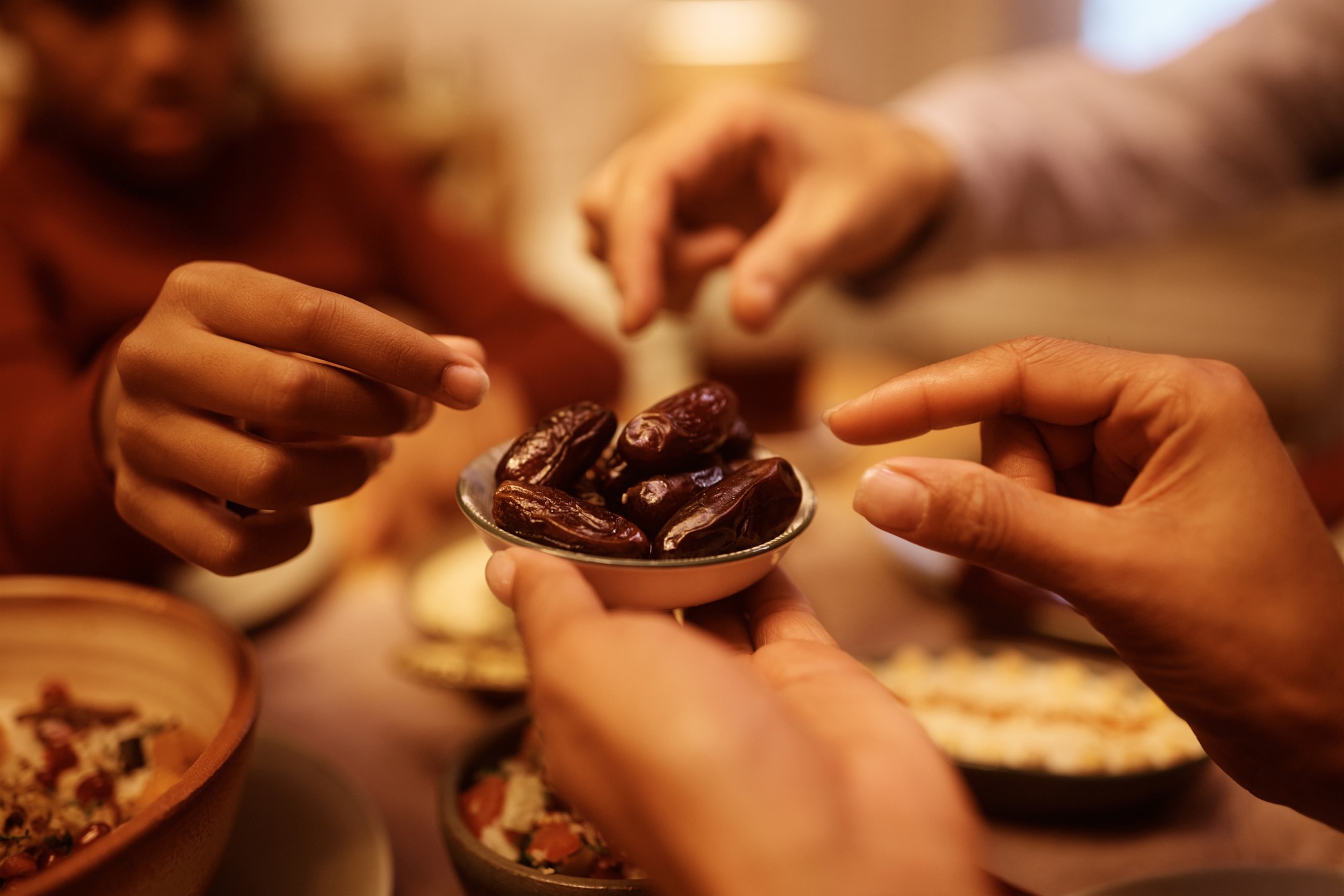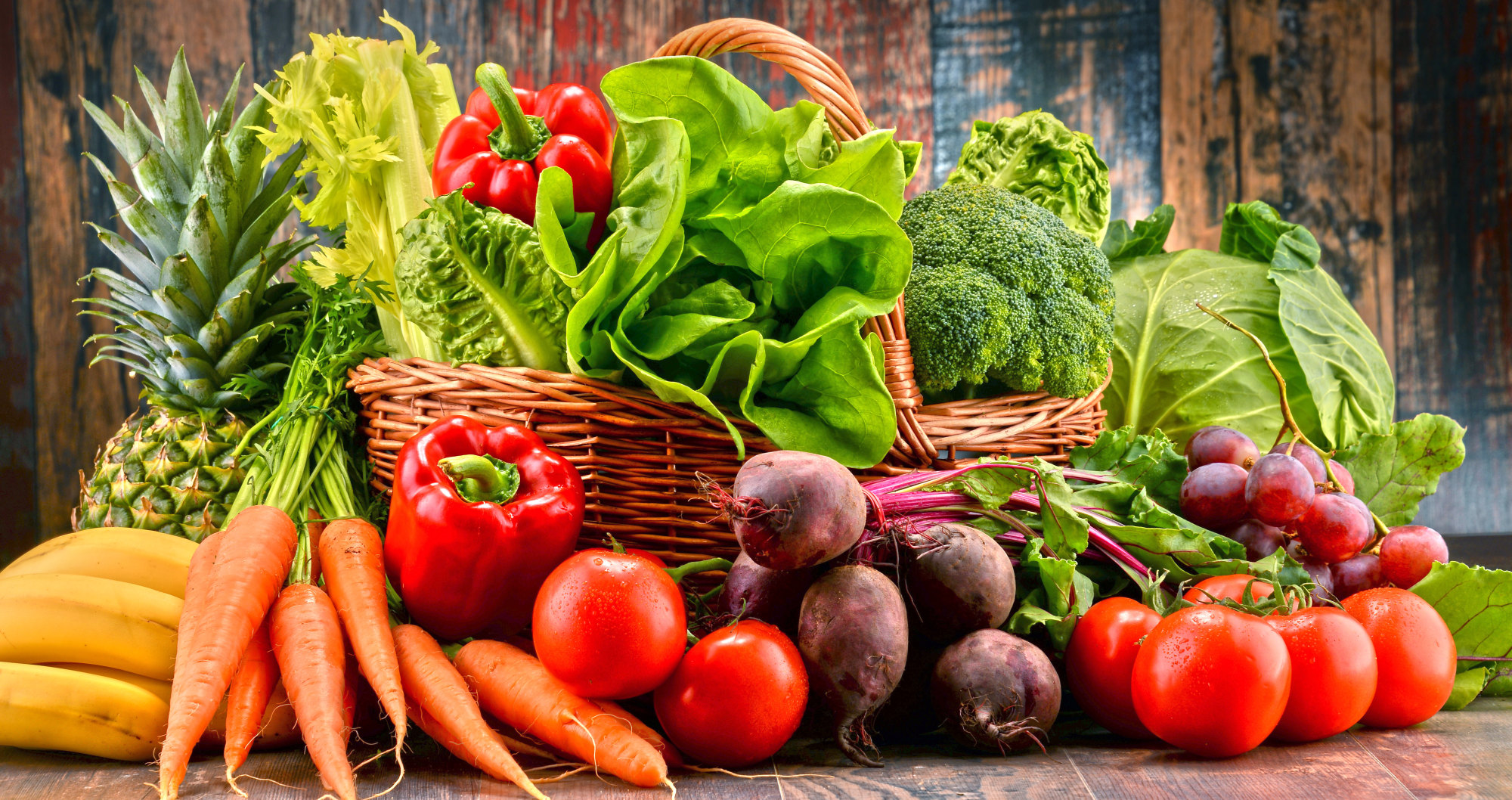Fasting is an important ritual for many faiths. Catholics, for example, are required to fast during the holy season of Lent, specifically on Ash Wednesday and Good Friday. Muslims have to abstain from food and liquids between dawn and sunset during the month of Ramadan.
Consider these expert tips to optimise your nutrition and prevent overeating during non-fasting periods, deal with hunger and food cravings, counter dehydration, and more.
1. Make every calorie count
When you have a meal, focus on nutrient-dense foods that provide the vitamins, minerals and energy you need to get you through your fasting hours, says Sally Shi-po Poon, a Hong Kong-based dietitian.
She recommends eating balanced meals containing:
-
Complex carbohydrates. Whole grains such as brown rice, quinoa and whole-wheat bread provide a steady release of energy. These high-fibre foods also help with satiety and digestion.
-
Lean proteins. Grilled chicken, fish, lentils, legumes and tofu help repair and build tissue and maintain muscle mass.
Seeds and nuts are superfoods – 5 of the best for heart health and more
Seeds and nuts are superfoods – 5 of the best for heart health and more
-
Healthy fats. Unsaturated fats, like avocados, nuts, seeds and olive oil, provide energy and are essential for the absorption of fat-soluble nutrients like vitamins A, D, E and K.
-
Fruits and vegetables. Besides hydrating your body with their high water content, these provide essential vitamins, minerals and antioxidants.
2. Stay hydrated
“Start and end your meals with water to help prevent dehydration, and drink plenty of water during non-fasting hours to stay hydrated,” Poon says.
If you like, begin your meals with a broth-based soup, which can provide hydration and nutrients without being too heavy, she adds.
3. Don’t overeat at mealtimes
Muslims traditionally break their fast (known as Iftar) with dates and water, which provide hydration and energy.
Another way to go easy on your stomach after a long period of fasting is with a protein-based smoothie or a nutrient-dense vegetable soup, says Philip Watkins, a naturopath at the Integrated Medicine Institute in Hong Kong.

Be aware of how much you eat when you finally have your first post-fast meal.
Gorging can overwhelm your digestive system and also put you in an energy slump, Watkins says. This drop in energy may affect your cognitive function and mental health for hours after your meal.
Poon adds that overeating after fasting can lead to a condition known as refeeding syndrome, characterised by rapid changes in fluid and electrolyte levels in the body. This can affect organs and systems and can be quite serious, although it is more commonly associated with extended periods of fasting.

4. Avoid certain foods
During Lent and Ramadan, it is advisable to limit or avoid certain types of foods when breaking your fast to ensure optimal nutrition and prevent rapid changes in blood sugar levels, Poon says.
She recommends avoiding these foods:
-
High-sugar foods. These can cause a rapid spike in blood sugar levels, followed by a quick drop, which can lead to feelings of hunger and fatigue.
-
Low-fibre foods. White bread, pastries and foods containing mostly refined carbohydrates do not keep you feeling full for long and can lead to overeating.
Water never tasted this good: a non-Muslim tries Ramadan fast for a day
Water never tasted this good: a non-Muslim tries Ramadan fast for a day
-
High-sodium foods. These can increase thirst during fasting hours, which can be uncomfortable and cause you to drink too much when breaking the fast, potentially causing bloating and discomfort.
-
Fried and fatty foods. High in calories and low in nutrients, they can also cause indigestion, especially after a fasting period.
-
Caffeinated beverages. Caffeine can act as a diuretic, potentially leading to dehydration.
5. Keep food cravings at bay
Poon shares several strategies to manage food cravings and hunger pangs when fasting:
-
Drink plenty of water. Fill up on water during non-fasting hours. Dehydration is often mistaken for hunger.
-
Have a balanced predawn meal (Suhoor). If you observe Ramadan, consume a balanced Suhoor with complex carbohydrates, fibre, lean protein and healthy fats to provide sustained energy throughout the day.
-
Load up on fibre-rich foods. Fill your plate with fruits, vegetables, lentils, legumes and whole grains – high-fibre foods that will help you feel fuller for longer.

-
Snack healthily. If you need to snack, choose nutrient-dense options like nuts, seeds, Greek yogurt or fruit.
-
Try distraction techniques. Engage in activities that keep your mind off food, such as reading, meditation or light exercise.
-
Schedule your meals. Plan your meals and snacks for non-fasting periods to prevent impulsive eating. Consult a dietitian for a tailored meal plan if you have difficulty achieving your nutritional requirements during fasting periods.
-
Record your cravings. Keep a journal to note when cravings appear, their intensity and how you deal with them. This can help identify patterns and triggers.
The health benefits of drinking enough water and how much you should drink
The health benefits of drinking enough water and how much you should drink
“People experience food cravings and hunger during fasting for different reasons – for instance, some individuals may be more sensitive to changes in blood sugar levels,” Watkins adds.
“If you experience energy changes before or after eating, you might need assistance managing your blood sugar. Addressing this with your healthcare practitioner before embarking on a fasting strategy can help minimise cravings and hunger when you begin.”
6. Prioritise rest
Remember to take things easy during fasting periods – this is especially important for Muslims during Ramadan, since they are required to abstain from food and liquids all day.
Adequate rest helps your body conserve energy and maintains its functions throughout the day, Poon explains.
It also reduces the risk of dehydration as it typically involves less physical activity that could lead to increased fluid loss through perspiration.

Fasting can affect our cognitive function, causing fatigue and trouble concentrating. Rest can help mitigate these effects, ensuring better mental performance, Poon says.
